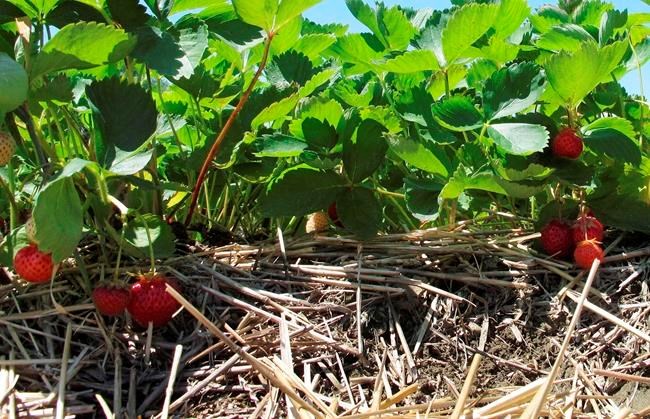A new study suggests a small insect encroaching on Quebec's strawberry fields could help forecast some major impacts of climate change on agriculture.
Researchers out of Laval University say migratory leafhoppers, a small cicada-like insect, appear to be arriving earlier in the season and dominating fields around Quebec City.
Not only that, they say leafhoppers are well-known vectors of a harmful bacteria and more research is needed to figure out if they are contributing to a reported increase in diseased strawberries around Quebec City.
Researchers say the study published in Cell Reports Sustainability adds to the science about how climate-driven pest invasions could threaten food security and exacerbate agriculture's environmental impact due to increased pesticide use.
Valérie Bernier-English, who works at a berry farm on l'île d'Orléans, says she first noticed leafhoppers in the fields about eight years ago and their numbers continue to grow.
She says although the insect has caused few problems at the farm, it makes their work more complicated and pushes them to use more insecticides.
This report by The Canadian Press was first published Feb. 23, 2024.
The Canadian Press



